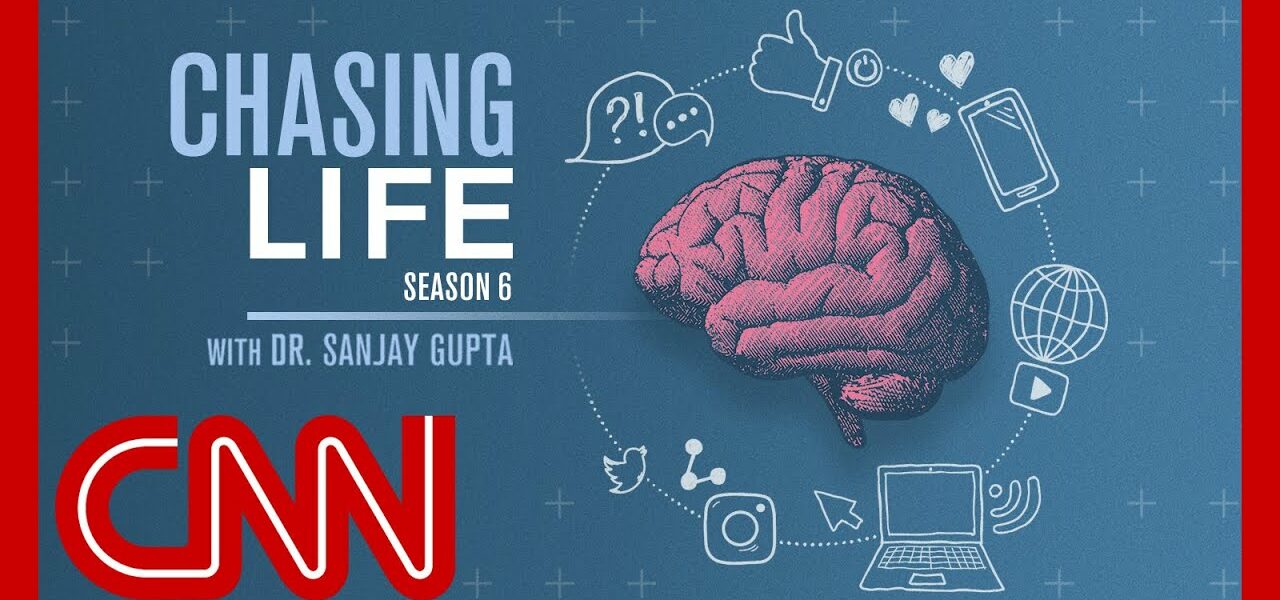Think back to the first time you held a smartphone or tablet in your hands. For most adults, this probably happened later in life. Now, a new generation of kids is growing up exposed to screen time as toddlers, or even babies. What impact will this screen time have on their very young and still growing brains? Dr. Dimitri Christakis takes us inside his lab at the Seattle Children's Research Institute and demonstrates how he studies some very young research participants. Plus, Dr. Christakis sits down with CNN’s Chief Medical Correspondent Dr. Sanjay Gupta and shares his most realistic tips for setting screen time limits.
To learn more about how CNN protects listener privacy, visit cnn.com/privacy ( )







Is screen time good or bad I seen on Google it stop development
Hmmm, I presume there have not been any updates concerning the mass ki11ing at a Christian school in Nashville, TN. It wouldn’t have anything to do with the identity of the perpetrator now, would it? For those of you unaware, here’s a quick update. The perpetrator was a 28-year-old biological female by the name of Audrey Elizabeth Hale. Hale presented herself as a male whose preferred pronouns were he/him. She also preferred to be addressed as Aiden.
Hey. I’m the director of the science lab. I just wrote the conclusion to the experiment. I made it short and sweet: computers suck.
Screen Time. A Possible Limitation. A Threat To Social Connection. A Balance Much More Important To Create For All People.
I allow my grandies a few minutes on screens and then I insist on them playing with toys to develop their imagination or conversing with real people.
Fascinating to see the impact of technology on the next generation.
Why does she ‘baby talk’ to the child? This does not seem to be a professional operation.
With this data, scientists are better equipped to decipher what Biden is trying to say.
What about Fetterman?😂😂
@mark cosenza veternarians are working on that case 😂👍🏾
I’m thankful that I grew up watching TV shows, movies, and musicals with actors who spoke correct, intelligent English.
Keep the toddlers away from the kid sniffer Joe!
Is this Joe’s brain?🤣
This is such an interesting study. It definitely clarifies some of the questions around why children are so obsessed with screens. Hopefully it will lead to answers!
Don’t give them iPad or iPhones! Let them play with toys and colors
When your child tells you they would probably do something differently with their own children, isn’t that just what children have done throughout history?
it was so interresting to learn about the thought process behind the screentime recommendations! Makes it feel less arbitrary and easier to pinpoint what we should be looking at as parents
The voluntary consent of the human subject is absolutely essential. This means that the person involved should have legal capacity to give consent; should be so situated as to be able to exercise free power of choice, without the intervention of any element of force, fraud, deceit, duress, overreaching, or other ulterior form of constraint or coercion; and should have sufficient knowledge and comprehension of the elements of the subject matter involved as to enable him to make an understanding and enlightened decision. This latter element requires that before the acceptance of an affirmative decision by the experimental subject there should be made known to him the nature, duration, and purpose of the experiment; the method and means by which it is to be conducted; all inconveniences and hazards reasonably to be expected; and the effects upon his health or person which may possibly come from his participation in the experiment. The duty and responsibility for ascertaining the quality of the consent rests upon each individual who initiates, directs, or engages in the experiment. It is a personal duty and responsibility which may not be delegated to another with impunity.
well, your child can see when you are paying more attention to the screen than you are paying attention to them. By showing a child that you are very interested in the screen, it trains them to pay attention to the screen because you are showing them that it is important to pay attention to the screen.
Came here to see this. Same with parents who raised children who saw them glued to tv. My mother was glued to books, my earliest memories. I did what she did, focusing where she focused. I’m part of the 5% of the population who teaches themselves to read. Spent 40 years as a reading and dyslexia specialist.
Not really what I would prefer to watch but I’m sure it’s interesting to some. I wasn’t big on using the TV as a baby sitter when my kids were young, so I doubt the phone/tablet would be my choice these days.
Yes. Parents shouldn’t lame out in understanding the impact of screen time and the intelligence of our children of technology. My 27yo and 23yotwins often discuss how they will incorporate screens and guidance/oversight for their children, given their experiences. I was the curmudgeon who didn’t allow gaming systems in our house. Twas social media all along.